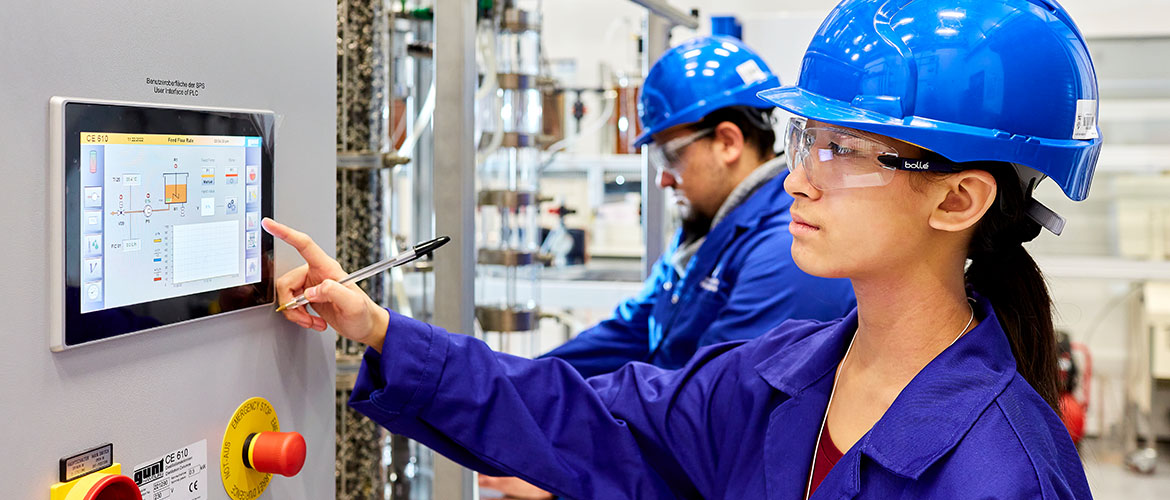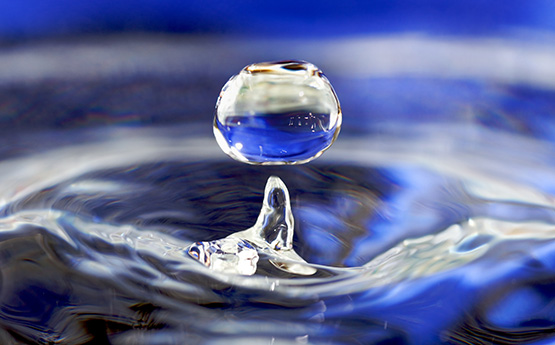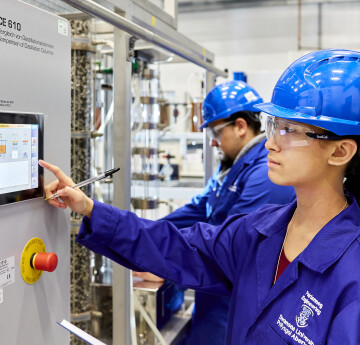Part of our everyday life
Most of the things which you use every day have probably been through some form of chemical process on the way to you. If this did not happen you would not be able to make much use of it.
For example: TV sets, music systems and computers originally start out as resources of crude oil and minerals. From these, metals, semi-conductors, glass and plastics are produced, in quantity, by chemical engineering. These materials are passed to engineers of other disciplines to produce components for, and to assemble, the finished products as you see them and use them.
Practically everything that you keep in the fridge has also been through some kind of engineering process. Dairy produce and fruit juices have met with biochemical engineering. For example, live yogurt has the right kind of bacteria in it and fruit juice is very nutritious, despite the fact that it is probably produced from a concentrate. If there is any chocolate in the fridge, then this too is the result of some very well-controlled process engineering.
The fridge itself is a product of process engineering. It extends the ‘shelf life’ of food by holding it at temperatures where natural biological processes, such as the growth of fungi and bacteria, are almost at a standstill. This helps us to make better use of food we buy or grow and so we waste less of it. Much of this food stays refrigerated during transport and storage in shops and supermarkets. Whatever items you use in the bathroom (soap, shampoo, shower gel, toothpaste) there is a good chance that this too has been engineered.
Whether you read this information on paper or on some type of display screen, chemical engineering has helped to make these media.
These are just a few examples - see how many others you can think of.
Chemical engineers play an important role in determining our standard of living and quality of life. Their activities are concerned with the use of science and engineering concepts to design efficient processes, turning raw materials into valuable products for human use.
Chemical engineers use their skills to optimise these processes. Natural resources are used sustainably and our daily products are produced economically. Chemical engineers create and manufacture materials and products we use every day. These include plastics, pharmaceuticals, personal care products, petrochemicals, agrochemicals, biomaterials and cement.





